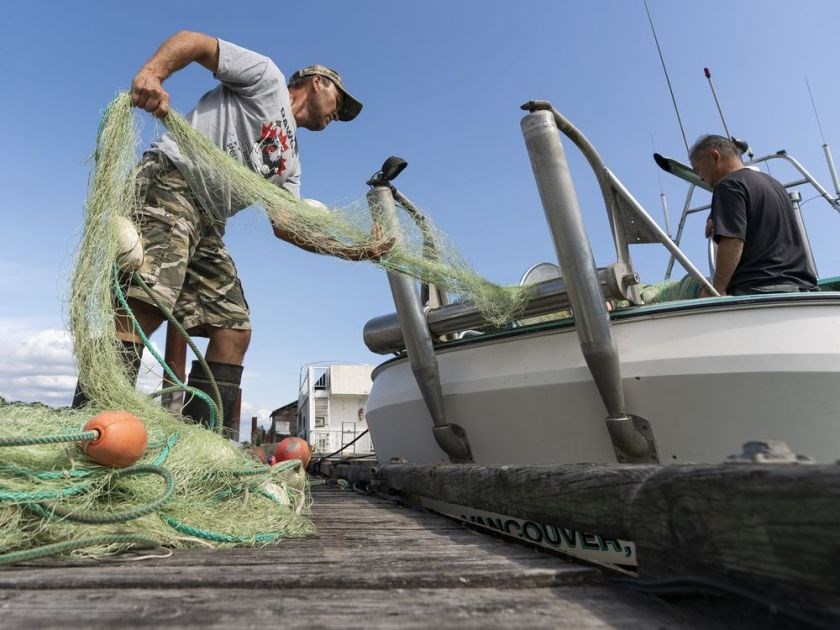VANCOUVER — Don Sananin has loved the sea and fishing since he started in the industry as a 17-year-old.
On the water, being so close to nature, soothed his soul.
“It’s absolutely beautiful. I even love a good storm. There’s only a few jobs that brings out the soul in you.”
But after more than 50 years working as a commercial fisherman, the Burnaby man hasn’t seen a salmon season as grim as this year’s. Sananin, 70, who holds a licence for the area that includes the Fraser River to the west coast of Vancouver Island, hasn’t been out on the water yet. “There hasn’t been an opening,” he said. “The sockeye is the worst it’s ever been since the 1890s.”
He’s one of the commercial fishermen and other workers — who rely on abundant and healthy salmon stocks for their livelihood — hit hard by the decline in stocks, which the federal fisheries ministry has attributed largely to climate change.
On Monday, First Nations and union leaders said the federal and provincial governments need to step in to help fishermen through the worst commercial fishing season in 50 years as runs have plummeted for all species and in all regions. “The impacts of this climate-change disaster has been coast wide,” Joy Thorkelson, president of the United Fishermen and Allied Workers’ Union, said in New Westminster.
“The impacts are on fishermen, plant workers, net menders, and reduction plant workers, from Lax Kw’alaams [in northern B.C.] all the way down to White Rock and all the places in between.”
Thorkelson said at least 2,500 people have been affected by the downturn. She shared stories from union members who had called her office asking for help, including a fisherman whose catch can’t cover fuel and provision costs and a shore worker who told her she has to look into school breakfast and lunch programs because she can only afford to provide one meal for her child.
Many of the workers haven’t earned money since last year’s salmon season, she said, calling the situation “a huge crisis.”
“People need disaster relief now,” she said. “We need to talk to the government about what climate change adaptation is going to look like for the commercial industry in the future, but we need something to keep the bodies and souls of those people together.
“They have no money.”
Bob Chamberlain, a former vice-president of Union of B.C. Indian Chiefs, says the government needs to come up with diverse solutions since global warming is an added stressor for salmon.
He said the issue affects people in the industry and communities across B.C., including First Nation communities who live in poverty and rely on salmon stocks as a source of sustenance.
“If those traditional foods are being threatened because of global warming,” he said, then the government is “further compounding the impoverishment of some marginalized people.”
John Helin, former gillnetter and current mayor of Lax Kw’alaams, said the lack in salmon has put pressure on other species of fish and there’s been a decline in their numbers.
Mike Emes, 75, fishes in northern B.C. waters from Alaska to Cape Caution, north of Port Hardy, said he has only fished for three days this year, and has not been able to break even with costs. “Absolutely terrible,” said Emes of this year’s catch. “I’ve seen some bad seasons, but never like this. I’m not even close to my fuel bill.”
He supports the union’s request for disaster relief. Farmers have access to a federal agricultural disaster relief program in case of a natural disaster, he said. It should be the same for the fishing industry in the face of climate change.
“I’m hoping they would help us out, even if they say we’ll give you unemployment insurance for the season,” said Emes. “It would be something. At least you can put some groceries on the table.”
A statement from the Department of Fisheries and Oceans said the government empathizes with the economic impacts of the declining salmon returns. Department spokeswoman Jocelyn Lubczuk said it doesn’t have the mandate to provide financial relief for workers but it has reached out to the Department of Employment and Social Development to discuss the situation.



